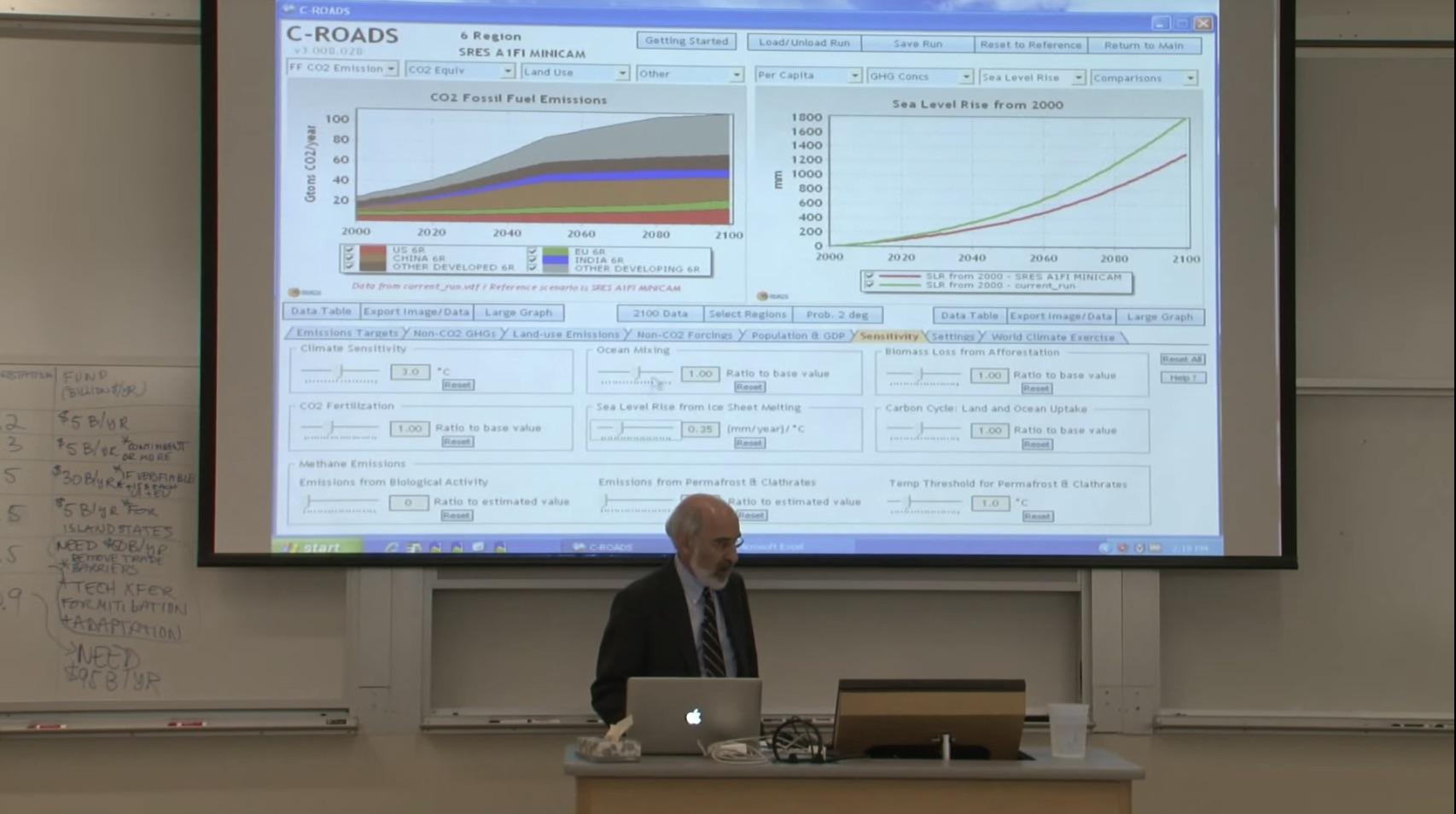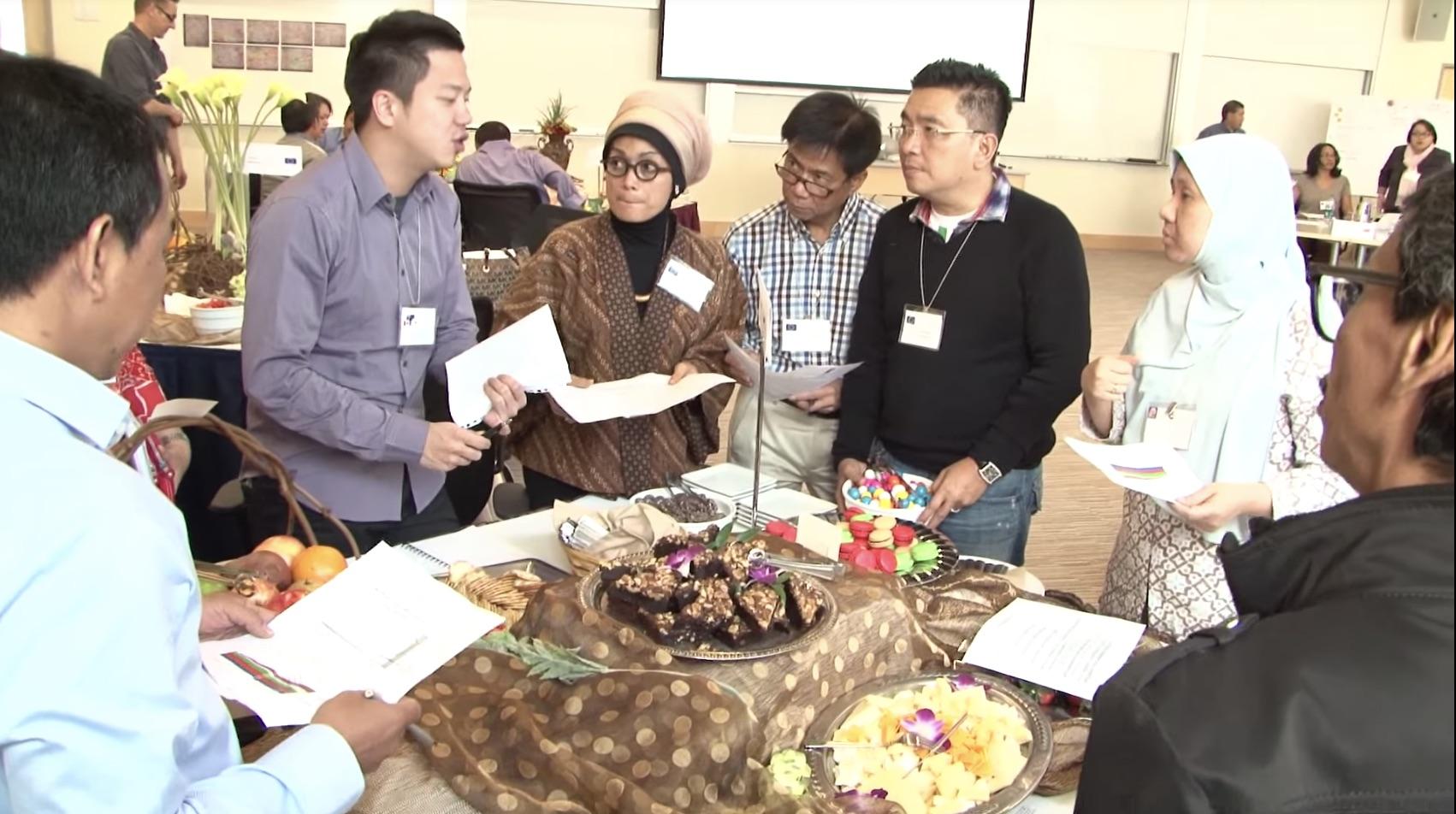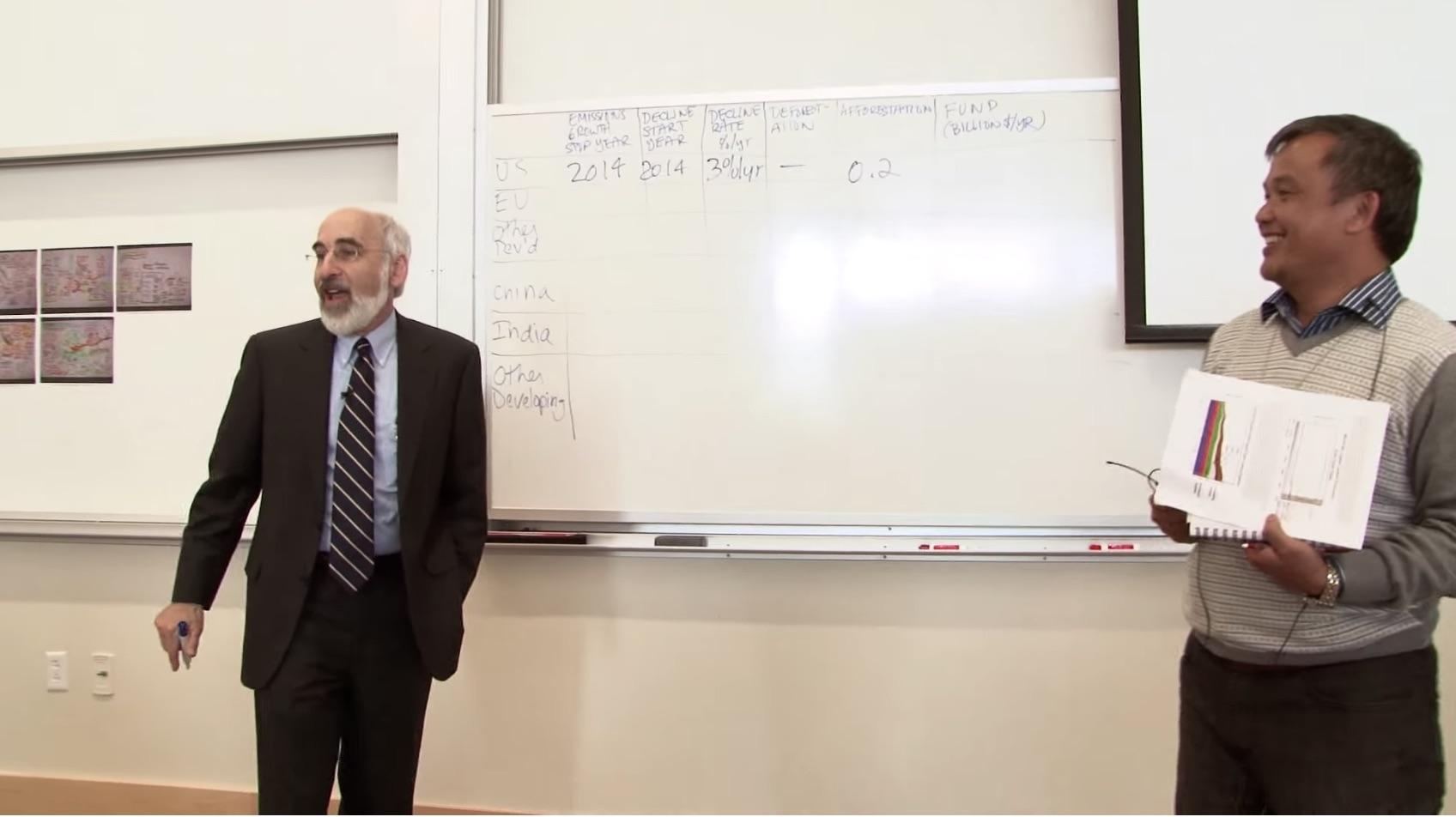How A Simulation Game Is Inspiring Climate Action
The World Climate Simulation drops players into a UN debate, and shows them the real-world impact of their game decisions.
Updated May 30 2019, 11:35 a.m. ET
How do you make the realities of the environment accessible and engaging? People have tried all sorts of methods, from bucket challenges to eye-popping art. But a new study suggests that a simulated role-playing game could be the best way to inspire environmental action.
This game is called World Climate Simulation, and it’s essentially Model UN meets Choose Your Own Adventure. Players are broken into teams representing different countries, all with different resources and concerns. They lobby for certain actions, debating other teams throughout the game for the best solution. When coalitions reach an agreement, they tell the moderator — and that’s when things get interesting.
Using a computer simulation, the moderator instantly shows the impact of their chosen action. The ocean pH levels might shift, the amount of the carbon in the air could rise or fall. If the sea levels rise, the moderator might even pull a blue tarp over the players’ heads to illustrate the effect, as seen in the video below.
World Climate Simulation typically runs 2-3 hours, and it’s meant to mirror real UN climate change negotiations. Developed by Climate Interactive, this game has been played at least 990 times in 78 different countries. The total number of participants is now nearing 44,000 — and a new study published in PLOS One indicates those players are leaving the game inspired and motivated to spark change.
The study surveyed over 2,000 participants before and after they played World Climate Simulation. According to the results, 92 percent of players rated the game an effective learning experience. But even more significantly, 81 percent reported gains in their motivation to fight climate change, regardless of their political beliefs.
The researchers found statistically significant increases in three areas: knowledge of climate change causes and impacts, affective engagement including greater feelings of urgency and hope, and a desire to learn and do more about climate change. To put it in less clinical terms, the game tended to increase the player’s understanding of climate change, along with a greater sense of urgency and hope, and ultimately, inspiration to take action.
“It was this increased sense of urgency, not knowledge, that was key to sparking motivation to act,” explained Juliette Rooney-Varga, the University of Massachusetts Lowell professor who led the study, in a press release.
Rooney-Varga’s team believes this interactive model works better than charts or figures, because it requires players to insert themselves into the climate change policy debate.
“Research shows that showing people research doesn’t work,” co-author John Sterman, a professor at MIT, said in the press release. “World Climate works because it enables people to express their own views, explore their own proposals and thus learn for themselves what the likely impacts will be.”
Anyone can play the game with the right training. Climate Interactive offers webinars for aspiring hosts on its website, along with informational guides, videos, and social media groups where newbies can connect with experienced moderators. After reviewing these materials, the moderator can then register a game through the site.
If the study findings are any indication, more games can only lead to more knowledge — and a newly discovered desire to act.
“For most of human history experience has been our best teacher, enabling us to understand the world around us while stimulating emotions—fear, anger, worry, hope—that drive us to act,” Rooney-Varga said in the press release. “The big question for climate change communication is: how can we build the knowledge and emotions that drive informed action without real-life experience which, in the case of climate change, will only come too late? The answer appears to be simulated experience.”



